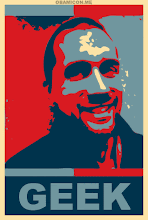Wednesday, September 30, 2015
Session 114 (J Bozarth/J Campos) - Designing for Performance...
Background Knowledge
Being friends with Jane in real life, I have followed the story of her husband and his health since day one. I have looked forward to this session in the most profound way since I heard about it...so here it is.
The Process
Leading up to K's surgery, symptoms were noticed...not surprisingly, these symptoms got bounced around by specialties until someone put their figurative finger on it and realized this had to be taken care of now. So, they did...and there was little information that was helpful to prepare them (again, being in healthcare, this isn't all that surprising...it's more in the moment-ish). The procedure happened, and rehab began...and all involved felt unprepared for all that came with it.
But, as Jane oft does, she came out handling it all, not without the help of those around her. Knowing her, and knowing K, it's great to know how things worked out, but i can't help but still feel very emotional listening to the story. When you see a story such as this from square one, it's a reminder of several things, not the least of which how little your problems should appear. When Jane talks about living wills and "not making it" makes my screen a little blurry...moving on.
Nobody's Worried About Anyone's Schedules But Theirs
The recovery process begins, but Jane was told to plan for a week off of work. A week later, K was still in the hospital. But Jane, AGAIN as Jane does, took it all in stride, going so far as to check out the homestead for any potential issues with a walker and mobility. Therapy is recommended, and Jane is handed a calendar with 26 appointments on it. 26. Damn. Appointments.
But, guess what? Jane can spring you out of a Turkish prison (so I've heard...*wink*), and she and K have both gotten way closer back to normalcy than anyone imagined...and we all couldn't be happier.
Now Over to Jeanette...
Jeanette swings it all the way back to slide one...and looks at the MRI image and asks the question: What is this? Now, those of us who know Jane or just listened know, BUT...what about someone seeing it for the first time? Tumor? Brain? That's about it...and we, as trainers, have to ask ourselves: How well and thoroughly do we really understand the content, and how good of a job do we do preparing our learners?
We look at the text of the awful "patient aid" titled "What to expect when you're expecting a craniotomy!". Long story short, the people that wrote this and provided this are BEYOND out of touch with (what would equate with) the learner in this situation. How many times do we simply posture up and say "Don't worry your pretty little head...we're smarter than you and WE'LL handle all the heavy lifting." Let's not "gloss over" anything...let's tie the learner in...let's connect them...let's allow them to own something.
Tumor's Gone...Problem Over?
Jeanette shows the picture of K post-op, with the scar...and asks "Tumor's out...problem's over?", to which we all uttered a resounding NO. Defining the problem, not just a facet of it, is IMPORTANT, and yet all too often we're happy to stop the figurative bleeding and not even consider the bandage...the healing...the wound care...etc. In K's care, there was a wide range of concerns, a wide array of people involved...there's SO MANY ANGLES that unless you put solid effort into defining the entire SCOPE of the it ALL, your solution is incomplete. Period.
Analogies and examples abound...but, Cliff Notes version is this: Despite how much we want to believe that we're working out of silos, we're still EMBEDDED in our silos. Like BURIED. Just like with a patient, we need to view learners as total pictures...not just a picture of one shortcoming/knowledge gap.
Conclusion
I've gotten a little more engaged verbally than typing-wise, but if nothing else is taken away from this, take this: Learners are our patients, and we need to see their entirety...not just the part(s) requiring our immediate attention. Easily the most emotionally engaged I've ever been in a presentation, and I can't thank Jane enough for sharing this incredible story.
Subscribe to:
Post Comments (Atom)


No comments:
Post a Comment